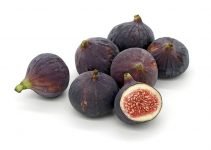
Pregnancy is a unique physiological state. Therefore, pregnant women need to take some precautions and make lifestyle changes, including dietary changes. But, of course, pregnancy is not a disease, but it is also not a regular physiological state.
Women generally need to increase their intake of certain foods to meet the higher nutritional requirement. The growing fetus needs many nutrients. Thus, women should consume nutrition-dense foods.
However, during pregnancy, women also need to avoid certain food items, as they may not be so good for fetal growth. Fortunately, the list of foods to be avoided during pregnancy is pretty small, and guava is not included in this list.
When it comes to fruits, most of them are quite good for those living with pregnancy. Fruits are packed with vitamins and minerals.
Though fruits are sweet, they contain complex carbs and have a low glycemic index and load. Fruits are also an excellent source of dietary fiber.
Fruits have a unique place in human nutrition. It means that all people must consume a portion of fruits daily to stay healthy. It also means that pregnant women must also eat many different fruits.
After all, unlike other foods, they are eaten raw, meaning that many fruit nutrients are better preserved, which would otherwise be destroyed due to cooking.
 One also needs to understand one more thing, that fruits are also an excellent source of phytocompounds. These are compounds produced by plants and have many unique health benefits.
One also needs to understand one more thing, that fruits are also an excellent source of phytocompounds. These are compounds produced by plants and have many unique health benefits.
However, science has a poor understanding of their role in health. Nonetheless, these phytocompounds act as antioxidants, improve gut microbiota, enhance mood, and influence other body functions.
Most fruits are safe and good to eat in pregnancy, including guava, but in moderation.
Guava is packed with nutrients
Guava is quite good to consume when living with pregnancy. Of course, as already said that one should avoid over-eating any foods. However, eating one or two guavas a day is quite good for those living with pregnancy.
Guava is among the few fruits that are pretty high in proteins and thus can promote fetal growth. In addition, it is low in saturated fats. Interestingly, guava is an excellent source of omega-3 and omega-6 fatty acids. Therefore, a cup of guava (about 165 g) may be enough to meet your need for omega-3 fatty acids [1].
Like most fruits, it is a good source of calories and healthy carbs and has a low glycemic index of below 10. In addition, it means that guava is even safe if you are diagnosed with gestational diabetes.
It is moderately high in dietary fiber. It is thus good for your gut but does not contain many non-soluble dietary fibers. Therefore, the content of dietary fiber in guava is enough to help maintain your gut health and prevent constipation, but it would not stimulate the uterus.
Of course, the main reason for eating guava is its content of micronutrients. Guava is rich in vitamin A and folate. Folate is especially good for fetal development.
However, most importantly, guava is a vitamin C powerhouse, and a cup of guava (about 165 g) would provide a whopping 377 mg of it or more than 600% of the required daily intake [1].
During pregnancy, women also need to increase their intake of minerals, and guava is a good source of potassium, copper, and manganese.
Excellent source of antioxidants
One of the reasons to eat more fruits during periods of high stress is that they are rich in antioxidants. Antioxidants are in abundance in fruits and vegetables. However, they are better preserved in fruits, as they are not cooked before eating.
Studies show that guava is rich in vitamin A, E, and C and in a number of phenolic compounds like kaempferol, esculin, sesamolinol, and many others. It is also an excellent source of quercetin [2].
These phytochemicals would help counter pregnancy-related stress, help keep inflammation in control, and promote fetal well-being. In addition, antioxidants help prevent mutations, and their adequate intake may be associated with a lower risk of congenital anomalies [3].
Other health benefits of guava
 In countries like India, where people have consumed guava for thousands of years, it is regarded as a fruit that may even help prevent and manage various ailments.
In countries like India, where people have consumed guava for thousands of years, it is regarded as a fruit that may even help prevent and manage various ailments.
Indians have traditionally used guava to prevent and treat diarrhea, parasitic infections, hypertension, diabetes, and pain relief [4].
Regretfully, guava has not received adequate attention from researchers. Nonetheless, most studies suggest that it is quite good for pregnant women.
It may help reduce inflammation, prevent the formation of blood clots, help reduce pain sensation, and has anti-mutagenic activity.
Are there any safety concerns?
Although there are no well-designed safety studies, it appears to be quite safe during pregnancy. In addition, there are no indications that it may cause any side effects when consumed in moderate amounts.
Guava is not known to stimulate the uterine; thus, it is good for consumption during all stages of pregnancy. Similarly, there is no evidence that it contains phytoestrogens in any massive amounts.
Hence, it would be safe to say that one can enjoy eating guava during pregnancy without many health concerns.
To sum up

It is good to eat fruits daily during pregnancy. However, some fruits must be consumed in smaller amounts, as they might stimulate the uterine, contain phytoestrogens, or even have some other side effects.
However, when it comes to guava, it appears not only safe but beneficial in pregnancy. It is packed with nutrients. It is an excellent source of both macro and micronutrients. Thus, it can provide even proteins and omega-3 fatty acids. In addition, it is quite rich in folate and vitamin C.
Finally, it is worth understanding that guava is also a rich source of many phytocompounds and antioxidants. Thus, it is quite possible that regular guava consumption may not only ensure proper fetal growth but also help prevent pregnancy-related complications or health issues.
References
- Guavas, common, raw Nutrition Facts & Calories. Accessed October 4, 2022. https://nutritiondata.self.com/facts/fruits-and-fruit-juices/1927/2
- Chiari-Andréo BG, Trovatti E, Marto J, et al. Guava: phytochemical composition of a potential source of antioxidants for cosmetic and/or dermatological applications. Braz J Pharm Sci. 2017;53(2). doi:10.1590/s2175-97902017000216141
- Pace ND, Desrosiers TA, Carmichael SL, Shaw GM, Olshan AF, Siega-Riz AM. Antioxidant Consumption is Associated with Decreased Odds of Congenital Limb Deficiencies. Paediatr Perinat Epidemiol. 2018;32(1):90-99. doi:10.1111/ppe.12403
- Naseer S, Hussain S, Naeem N, Pervaiz M, Rahman M. The phytochemistry and medicinal value of Psidium guajava (guava). Clinical Phytoscience. 2018;4(1):32. doi:10.1186/s40816-018-0093-8




 Dr. Preet Pal SB is a physician (M.D. Medicine) with a specialization in diabetes (Fellowship in diabetes, Royal Liverpool Academy). He has a particular interest in metabolic disorders, considering that they are rising in every corner of the world, more so in India.
Dr. Preet Pal SB is a physician (M.D. Medicine) with a specialization in diabetes (Fellowship in diabetes, Royal Liverpool Academy). He has a particular interest in metabolic disorders, considering that they are rising in every corner of the world, more so in India.